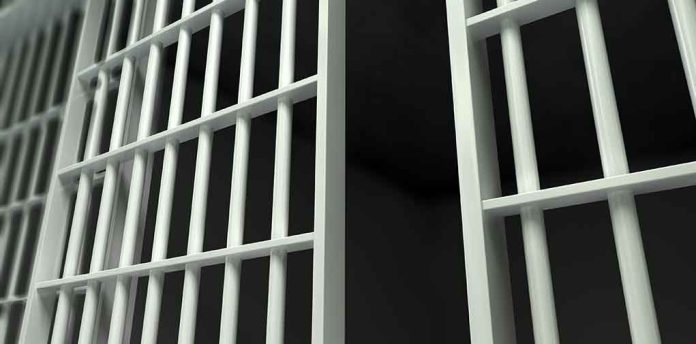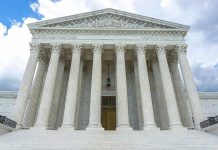
Julian Assange, the controversial WikiLeaks founder, walks free after years of confinement, but at what cost to press freedom?
At a Glance
- Julian Assange released after 5 years in British prison, pleads guilty to violating Espionage Act
- Assange’s plea deal raises concerns about criminalizing journalistic activities
- Press freedom advocates warn of chilling effect on investigative journalism
- CIA allegedly considered abducting and assassinating Assange in 2020
- Assange urges European lawmakers to protect freedom of expression amid increasing threats
Assange’s Release: A Pyrrhic Victory for Press Freedom?
Julian Assange, the polarizing figure behind WikiLeaks, has finally tasted freedom after spending five years in a British prison. However, his release comes with a hefty price tag for journalism and the First Amendment. Assange’s plea deal with U.S. authorities, while securing his freedom, has set a dangerous precedent that could have far-reaching consequences for press freedom worldwide.
The deal, which saw Assange plead guilty to one count of violating the Espionage Act, marks the first time in American history that gathering and publishing government secrets has been successfully treated as a crime. This outcome sends a chilling message to journalists who dare to challenge government secrecy and expose wrongdoing.
PRESS RELEASE:
Julian Assange to Address Council of Europe Following Confirmation of his Status as a Political Prisoner
On October 1, Julian Assange will arrive in Strasbourg to give evidence before the Committee on Legal Affairs and Human Rights of the Parliamentary Assembly…
— WikiLeaks (@wikileaks) September 24, 2024
The Criminalization of Journalism
Assange’s case has exposed the growing trend of criminalizing journalistic activities, particularly those involving national security reporting. The U.S. government’s relentless pursuit of Assange, including amending the indictment to add 17 counts under the Espionage Act, has drawn criticism from press freedom advocates and human rights groups worldwide.
“I am not free today because the system worked. I am free today after years of incarceration because I pled guilty to journalism,” Assange stated in his first public address since his release.
This stark admission highlights the dangerous precedent set by his case. By accepting a plea deal, Assange has inadvertently legitimized the government’s narrow interpretation of First Amendment press freedoms. This outcome could embolden prosecutors to target other journalists who report on classified information, regardless of its public interest value.
The CIA’s Alleged Plot and Government Overreach
Perhaps the most shocking revelation to emerge from this saga is the allegation that CIA officials considered abducting and assassinating Assange in 2020. This alarming claim, if true, exposes the lengths to which some elements within the U.S. government were willing to go to silence a publisher of inconvenient truths.
Moreover, reports of U.S. spying on Assange’s family and attempts to gather evidence against them further underscore the government’s overreach in this case. Such tactics not only violate basic principles of justice but also serve to intimidate journalists and their sources, potentially stifling future whistleblowers from coming forward with crucial information.
The Global Ripple Effect
The ramifications of Assange’s case extend far beyond U.S. borders. As the world watches, authoritarian regimes are taking notes, using the Assange prosecution as justification for their own crackdowns on press freedom. The U.S. government’s actions have undermined its moral authority to criticize other nations for persecuting journalists.
“You’ve now got China using the Assange case as a sort of moral equivalence argument. So the message [of the Australian delegation] is going to be: this is very dangerous for journalists around the world and a race to the bottom that’s going on.” – Australian Barrister Greg Barns
The Biden administration now faces a critical decision: to drop the case against Assange and reaffirm America’s commitment to press freedom, or to continue down a path that threatens the very foundations of investigative journalism. The choice they make will have lasting implications for the future of free expression and government accountability.
A Call to Action
As conservatives, we must remain vigilant against government overreach and the erosion of our constitutional rights. The prosecution of Julian Assange sets a dangerous precedent that could be used to silence voices across the political spectrum. It’s time for Americans to demand that their government uphold the principles of press freedom enshrined in the First Amendment, regardless of how inconvenient or embarrassing the published information may be to those in power.
“Obtaining and disclosing sensitive information when necessary in the public interest is a core part of the daily work of journalists. … If that work is criminalized, our public discourse and our democracies are made significantly weaker.” – Five of the world’s most respected newspapers.
The battle for press freedom is far from over. As Assange steps into an uncertain future, the true test lies in how we, as a society, respond to this watershed moment. Will we allow the criminalization of journalism to become the new norm, or will we stand up for the principles that have long been the cornerstone of our democracy? The answer to this question will shape the future of free speech and government accountability for generations to come.

















